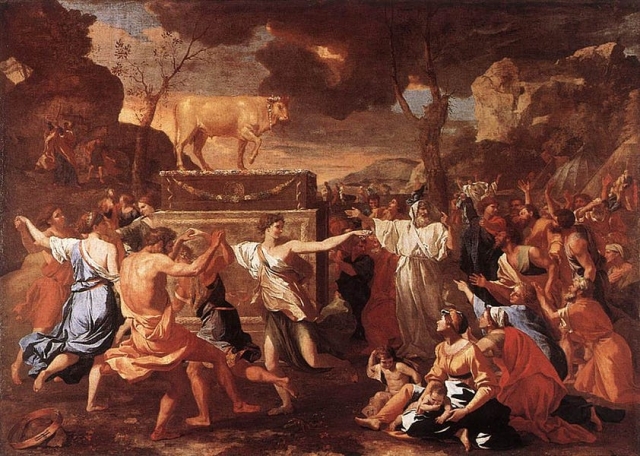The recent protests in Israel and ongoing heated debate surrounding the sitting right-wing coalition and their various policy reforms seem to be the latest talking point surrounding the neverending international media coverage of the Zionist state. Perhaps media outlets, and Israeli protesters on both sides think their strong opinions and the cause are something new and groundbreaking in the development of the Jewish people; but like anything else in the world, especially fundamental debates of this sort, it is the farthest thing from being new and has been walking side-by-side with the Jewish people for thousands of years.
Similar to how ideological differences exist in the modern State of Israel, in ancient times, during King David’s rule, there was a deep rift in the general outlook the Israelites from the different corners of the kingdom had. While those closer to the capital of Jerusalem and its surrounding mountainous terrain were traditionalists and felt that a strict following of the conservative and religious values was most important; Israelites inhabiting the areas further away, such as the Galilee and the lands closer to the coastline were more liberal and open to accepting other customs and other gods other than the God of the Hebrews.
In the very same geographical way Israeli politics have been split in modern-day Israel, so was the ancient kingdom of Israel. Nonetheless, the kingdom officially split with the city of Jerusalem and the surrounding area being known as the Kingdom of Judah and the other part known as the Kingdom of Israel. It is very easy to argue in favor of the claim that the lack of unity the Israelites suffered from ancient times, remained in some fashion throughout the Second Temple period and directly resulted in the Roman exile of Jews, leading to the 2000-year Jewish Diaspora crisis.
not be particularly meaningful to liberal Jews. In modern times, many Jews understand Tishah B'Av as a day to remember many tragedies that have befallen the Jewish people throughout history, and to reflect on the suffering that still occurs in our world. (+)
— World Union for Progressive Judaism (@WUPJudaism) July 29, 2020
It is also worth mentioning that during the destruction of the First Temple and the subsequent Babylonian exile, the less ethno-conservative Israelites assimilated into their new homes and today are largely forgotten from the history books, never to unite with the other Israelites, who were renamed Jews in the coming centuries. This note is not to smite any group of ancient Israelites or modern-day Jewish liberals, but merely pointing out the fact that when less care is given to pampering certain traditions and values, they are ultimately lost and abandoned; something that shouldn’t concern anyone who has willingly chosen to leave certain aspects of identity behind.
Centuries would go by in the second Roman exile period before the ancient debate would resurface, this time in a new form. During the second half of the 18th century, an era known as the “enlightenment period”, European Jewish scholars mainly in the different Germanic lands began to revisit the way Judaism at the time was observed and seek a way to modernize the values and practices to help the entire Jewish population assimilate into the rapidly changing world around them. This movement led by highly-educated scholars, rabbis, and others would eventually become known as Reform Judaism, and to some extent Conservative Judaism as well.
From @ishaantharoor: "Israel's privileging of its Jewish identity over all others is now seen by some in the European far right as a model to be emulated, a muscular rejection of universalist doctrines and the high-minded liberalism that they despise." https://t.co/LkYazTqqqV
— John Carl Baker (@johncarlbaker) March 28, 2023
This new romantic twist to the ancient Jewish traditions had a huge impact on the entire Jewish world and beyond, resulting in the explosion in popularity of yet another Jewish-religious movement: Hasidism. By all accounts, the extremely traditionalist Hasidic dynasties that had been evolving up until that time were direct competitors of the “enlightened” Jews developing in central Europe. Hasidism itself was, and still is, controversial within the ultra-orthodox community, but the point is, once again a rift in the way Jewish leaders believe the offspring of the Israelite people should move forward within an ever-changing modern world.
Once again, it could and should be noted that the modern-day Jewish Reform movement has not made much of an effort to prevent the complete assimilation of its followers through intermarriage and just a general lack of faith in the typical Jewish traditions; this, again, is not an offensive on the movement but the pure reality of their seemingly liberal outlook to new customs and with recent studies showing close to half of Jews in countries like the US, where most Jews are non-affiliated or Reform, have intermarried.
And I also know that given demography and the swaying winds of world history, the Jewish state needs to be able to survive the waning and waxing of liberalism. Which means faith in institutions and buy-in that crosses all major sectors.
— David Hazony (@davidhazony) March 24, 2023
That brings the story full circle, through thousands of years in the Diaspora, back to Israel. Half of Israelis who are against the policies being pushed by Netanyahu and his government are terrified of being dictated to by traditionalists who are aligned with preserving the Jewish people and their beliefs, while the other half, which by the way are not necessarily observant, are afraid that modern Israel may lose its Jewish identity through an extensive process of assimilation and policy that puts democracy way above Jewry. No side is necessarily right or wrong, and no accurate predictions can be made on what the future has in store for the highly diverse Israelites, but perhaps a walk through the major milestones of our people's history could guide us in the right direction, hopefully, one that avoids bloodshed or any further internal conflict.


